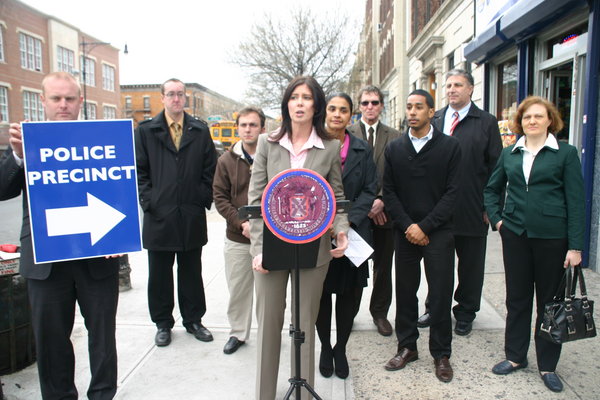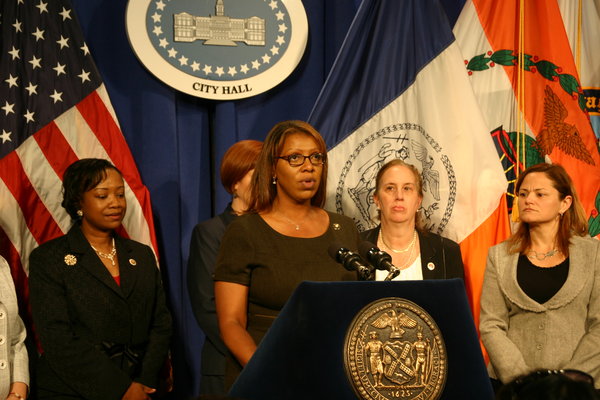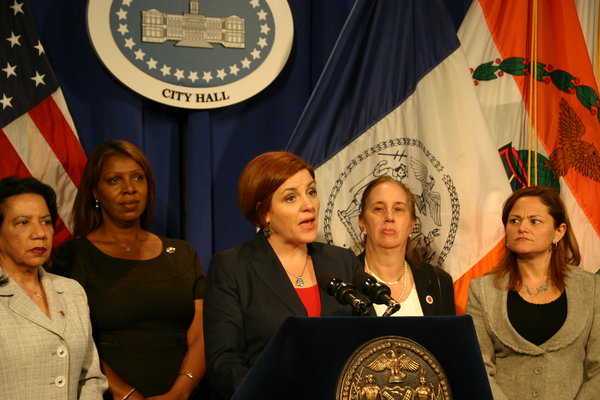Reps request DOT signs for precincts
Council members Diana Reyna and Elizabeth Crowley together introduced a bill last week calling for the Department of Transportation to install signs around the city directing residents to their local precincts.
“People are often trying to find their police precinct in times of emergency,” Crowley said in a joint press conference last week on the corner of Fresh Pond Road and Catalpa Avenue down the street from the 104th Precinct. “They could be going down to file a regular report or a complaint, or if something serious happens and police need to know, often they come down to the precinct in person.”
The Department of Transportation (DOT) denied multiple requests from the representatives for precinct signs, so they drafted legislation, Crowley said.
The bill, they said, was constructed with the help of Ridgewood-based community groups and civic organizations.
Because the 104th Precinct is not on a main road but serves a large geographic area, Crowley said residents in Maspeth and Middle Village often have trouble finding it.
Since DOT directs pedestrians and motorists to hospitals, parks, museums, and even stores like Ikea, Crowley said it should follow suit that high-crime areas such as Ridgewood receive help finding their local law enforcement.
Although DOT does not comment on legislation before a hearing, Crowley said it will be in charge of deciding specifics, such as where on the street the signs are placed.
Reyna said a fiscal impact document will assess the cost of the signs. But Crowley said the cost shouldn’t be high, since DOT constructs its own signs in a warehouse in Maspeth.
A hearing will also be held regarding the bill, as part of the legislative process.
“In that hearing,” Crowley said, “we’ll hopefully hear from communities throughout the City of New York, and we’ll identify if the need is for every precinct.”
However, both Crowley and Reyna pledged to make sure the first precinct sign is installed for the 104th.
Reyna said the bill responds directly to requests from Ridgewood community members and local groups, such as Community Board 5.
“When we talk about government and access to government and transparency, it starts with the simple signage that indicates where people should go to access what is the basic function of having their local precinct,” she said. “Ultimately, this piece of legislation is necessary because it’s coming from the main advocate, the people of Ridgewood.”
Michael Hetzer of Citizens for a Better Ridgewood said it’s easy to find precincts that are on a main road, but many are tucked away on side streets. He agreed that the legislation came from the community.
“It is very organic,” he said of the bill, “and it seems very simple.”




